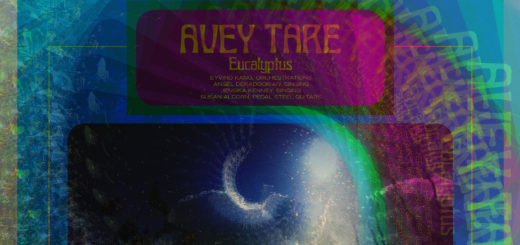CULTURE by Migos

Genre: Trap Rap
Favorite Tracks: “Culture (featuring DJ Khaled),” “T-Shirt,” “Get Right Witcha,” “Slippery (featuring Gucci Mane),” “Big On Big”
If anything can be said about Migos’ second official album, it’s that the title is appropriate. Comparable to a slightly more focused callback to the heyday of the Wu-Tang Clan, Migos are a viciously efficient group who released an explosive collaborative effort, spread their wings and flew to an avalanche of features, and periodically reconvene for “event” albums that rip through the hip hop world. As such, they are currently one of the most omnipresent voices in modern rap, and have established a lucrative symbiotic relationship with the culture of the Atlanta streets that they represent. It’s no secret that Atlanta is dominating the current hip hop landscape, especially considering the explosive reincarnation of Gucci Mane and the parameter-pushing antics of Lil Yachty, but Migos are by far its most consistent acolytes. The Atlanta artist with the most pop crossover appeal (look at the ridiculous ascent of “Bad and Boujee” and the cultural wildfire of the Dab), everything Migos releases further cements themselves, their hometown, and their relationship with such deeper into the cultural consciousness. Unfortunately, while Migos seem willing to shake things up a bit in terms of their overall sound, the net results are the same as they ever are.
Right off the bat, Migos deserve a nod for not going the Gucci Mane route and only working with Zaytoven and Mike WiLL Made It; this is the first indication that they’re slightly more invested in a wide-reaching statement on the culture as a whole. And the production does, in fact, manage to differentiate itself; album opener “Culture (featuring DJ Khaled)” makes use of a percussive, vibraphone-esque array of tubular sounds (struck idiophonics, if ya nasty), “Call Casting” takes the tried-and-true route of ominous organ, and “Deadz (featuring 2 Chainz)” rests easy on a dour, nearly imperialistic synth-horn march. While the familiar, vaguely orchestral leanings of Zaytoven are easy totems to rally around on “Big On Big” and “Brown Paper Bag,” the most memorable track from a production standpoint is easily “What The Price,” which incorporates a twisted, psychedelic guitar that wouldn’t have sounded out of place on “Piss On Your Grave” before turning into something that nearly borders on a somber piano ballad. However, things are notably less “fun” this time around, with only the breezy pan flute and hand claps of “Get Right Witcha” and the woozy late-night klaxons of “Slippery (featuring Gucci Mane)” really allowing the audience to let loose.
So if the production sounds so different, why does CULTURE sound so familiar to everything else they’ve done? The trademarked Migos Milieu is genius in terms of branding and marketing, but it is so dominant and browbeating that it can’t help but overshadow every other aspect of their artistry. You know that you’re going to get a nearly militaristic delivery that rigidly adheres to rhythmic grooves, you know that you’re going to get Auto-Tuned verses, and you know that Quavo is the belle of the ball, despite Takeoff having the most interesting voice. It’s the same formula we’ve heard since the trio’s inception (well, with slightly more Auto-Tune), and at this point, it’s starting to yield diminishing returns. In most cases it’s enough to render the production entirely irrelevant; re-listen to “Bad and Boujee,” wait ten minutes, and you just try to hum the actual melody. As mentioned before, this is encouraging in terms of the personas they’ve crafted, but also results in an opaque mire of actual listening experience, leaving most of the heavy lifting to the lyrics.
Migos have never exactly been Shakesperean, but things seem rather dire this time around. Although they’ve always flaunted their wealth and propensity for drug-dealing, the constant barrage of lyrics involving molly and cocaine grow tiresome, especially when they’re delivered through such prose as, “She eat the molly like a snack” and, “White like tissue.” When they’re not thinking of progressively less inventive slang for the various contents of their drug cabinets, Migos seem content to deliver clunkers such as, “White boys in the game / Call ‘em Andy Milonakis,” (“Call Casting”) “My bitch (bitch) for real, she honest, won’t tell / Popeyes, oatmeal, Popeye’s and oatmeal (ay) / She gon’ kill (pew pew pew pew pew pew) yeah,” (“Kelly Price”) or “Big scales (scales), fishscale, big weight (fish) / Iceberg (ice), ice tray, ice tray (woo).” (“Slippery”)
As an unapologetic fan of Chief Keef, I’m no stranger to lyrics that push the boundaries of taste. However, in Keef’s case they are part of an overarching paranoid, claustrophobic auteurism considering the fact that he also produces much of his own music; in short, the lyrics he provides are more intimately integrated into the artistic effort as a whole, whereas Migos seem like they fly in for a few hours, toss up a few lazy freestyles, and cash their checks. I have long defended hip hop lyricism through the Foucaultian will to stupidity, an intentional middle finger to Eurocentric conceptions of taste and respectability. Unfortunately, considering the memetic potential of nearly everything Migos releases, this doesn’t apply in this case, as they’ve transcended several sociopolitical boundaries to be featured on radio stations worldwide. This is not an outsider artist making a statement, but a group of three very rich men who no longer have to try particularly hard.
But, as “Bad and Boujee” proves, Migos still know how to rock the shit out of a hook, and “T-Shirt” is an easy career highlight, one of the most relaxed, catchy, and nonchalant singles they’ve released thus far. As always, Migos is loud, proud, and here to stay, and there’s nothing too egregiously misplaced on CULTURE to hint that that fact is going to change anytime soon. Despite the complete drop off in the last four tracks, at worst the album is forgettable, and at best, it’s already playing at parties across the nation. I infamously once elected to have the entire soundtrack to a party be seven hours of Migos’ discography; nobody took any notice either way. Every track on CULTURE can fit into that same parameter, and as such, it’s hard to really get too shook up about it to either extreme.
Verdict: Recommend



